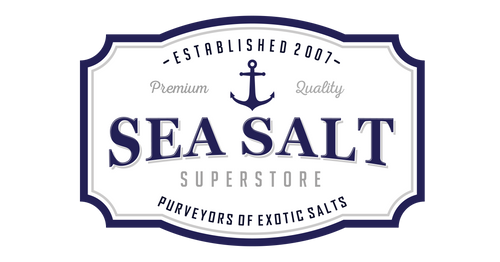Salt has been used for centuries not only as a seasoning but also as a remedy for various health and beauty purposes. From its exfoliating properties to its ability to balance skin’s natural oils, salt plays a key role in enhancing skin health. Whether you use it in scrubs, baths, or as part of your skincare routine, salt can offer a variety of benefits for the skin.
1. Natural Exfoliation
One of the most well-known skin benefits of salt is its ability to exfoliate. Salt scrubs are popular for their coarse texture, which helps slough off dead skin cells. Regular exfoliation removes buildup of dead cells on the surface of the skin, promoting smoother, more radiant skin. It also stimulates blood circulation and encourages the production of new skin cells, which can result in healthier, more youthful-looking skin.
Himalayan pink salt and sea salt are often used in exfoliating scrubs because of their large crystals, which provide effective physical exfoliation. These scrubs can be massaged gently into the skin to help remove impurities and smooth rough patches, leaving your skin feeling rejuvenated.
2. Detoxifying and Cleansing
Salt has natural detoxifying properties that help to draw out impurities and cleanse the skin. Sea salt, in particular, is rich in minerals like magnesium, calcium, and potassium, which can help maintain the skin’s natural balance. When applied topically, salt can draw out toxins, excess oils, and bacteria from the pores, helping to prevent acne and blemishes.
A sea salt facial mask or a salt-infused body scrub can help to deep cleanse the skin by absorbing impurities and leaving it feeling fresh. The minerals in sea salt also help to balance the skin's natural oils, making it suitable for both oily and dry skin types.
3. Balancing Oil Production
For individuals with oily skin, salt can be an effective way to balance sebum production. Salt helps to regulate oil secretion by removing excess oils from the skin's surface. This is why salt-based skincare products are often recommended for acne-prone skin. By maintaining oil balance, salt helps to reduce the appearance of acne breakouts and prevent clogged pores.
Furthermore, salt's antimicrobial properties can help combat bacteria on the skin, preventing infections or inflammation caused by excess oil. Many people with acne or oily skin find that salt helps reduce inflammation and provides a mattifying effect, giving the skin a smoother, more even appearance.
4. Anti-inflammatory Properties
Salt, especially Epsom salt and Himalayan pink salt, contains magnesium, which has known anti-inflammatory benefits. Magnesium can help soothe irritated skin, reduce redness, and calm inflammation. Conditions like eczema, psoriasis, and other inflammatory skin disorders can benefit from magnesium-rich salts. A warm bath with Epsom salt can help reduce itching, inflammation, and discomfort associated with these skin conditions.
Magnesium also supports the production of collagen, which is vital for maintaining skin elasticity and promoting the healing of damaged skin. Regular use of magnesium-rich salt in skincare routines can help improve the skin's texture and resilience.
5. Hydrating and Moisturizing
Although salt has a reputation for drying out the skin, it can actually help with hydration when used correctly. Salt helps retain moisture by improving the skin’s barrier function, which helps to lock in hydration. When combined with moisturizing ingredients like oils (coconut oil, olive oil, or almond oil), salt-based scrubs or baths can provide deep hydration while exfoliating the skin.
For those with dry skin, adding a bit of salt to a bath or body scrub can help restore moisture and soften the skin. The minerals in the salt help replenish the skin's moisture barrier, leaving it feeling smoother and more nourished.
6. Reducing the Appearance of Cellulite
Salt is also sometimes used in the treatment of cellulite. The exfoliating effect of salt scrubs helps to improve circulation, break down fatty deposits, and firm up the skin. Regular use of a salt-based scrub or massage can help improve the appearance of cellulite by stimulating blood flow and lymphatic drainage. The mineral-rich composition of sea salt and Himalayan salt helps to tighten and tone the skin over time.
7. Soothing Sunburns
If you've spent too much time in the sun, salt can help soothe and cool sunburned skin. Saltwater, such as that found in the ocean, has been known to reduce the pain and discomfort of sunburn by drawing moisture into the skin. Epsom salt baths are also an excellent option for calming irritated skin after sun exposure. The anti-inflammatory properties of magnesium help reduce the redness and swelling caused by sunburns, providing relief and accelerating healing.
8. Salt Baths for Skin Health
One of the easiest ways to incorporate salt into your skincare routine is through a salt bath. Soaking in a bath with Epsom salt or sea salt can help to detoxify the skin, promote relaxation, and relieve stress. The minerals in the salt are absorbed into the skin, aiding in hydration, reducing inflammation, and improving overall skin appearance. Salt baths are a particularly beneficial treatment for those with dry skin, as they help restore moisture and improve skin texture.
Conclusion
Salt can be a powerful ally in your skincare routine. Whether you're using it to exfoliate, detoxify, reduce inflammation, or balance oil production, its numerous benefits are hard to ignore. From bath salts to scrubs, salts like Himalayan pink salt, sea salt, and Epsom salt can provide your skin with vital minerals and a radiant glow.
However, as with all skincare treatments, it’s important to use salt in moderation. Excessive salt application may dry out the skin or cause irritation. Always test a small amount first and be sure to follow up with a moisturizing routine. With the right approach, salt can be a valuable addition to your skincare regimen, enhancing your skin’s natural beauty and health.




